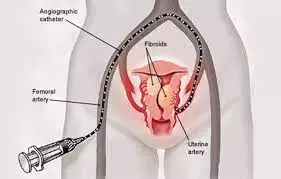- Home
- Medical news & Guidelines
- Anesthesiology
- Cardiology and CTVS
- Critical Care
- Dentistry
- Dermatology
- Diabetes and Endocrinology
- ENT
- Gastroenterology
- Medicine
- Nephrology
- Neurology
- Obstretics-Gynaecology
- Oncology
- Ophthalmology
- Orthopaedics
- Pediatrics-Neonatology
- Psychiatry
- Pulmonology
- Radiology
- Surgery
- Urology
- Laboratory Medicine
- Diet
- Nursing
- Paramedical
- Physiotherapy
- Health news
- Fact Check
- Bone Health Fact Check
- Brain Health Fact Check
- Cancer Related Fact Check
- Child Care Fact Check
- Dental and oral health fact check
- Diabetes and metabolic health fact check
- Diet and Nutrition Fact Check
- Eye and ENT Care Fact Check
- Fitness fact check
- Gut health fact check
- Heart health fact check
- Kidney health fact check
- Medical education fact check
- Men's health fact check
- Respiratory fact check
- Skin and hair care fact check
- Vaccine and Immunization fact check
- Women's health fact check
- AYUSH
- State News
- Andaman and Nicobar Islands
- Andhra Pradesh
- Arunachal Pradesh
- Assam
- Bihar
- Chandigarh
- Chattisgarh
- Dadra and Nagar Haveli
- Daman and Diu
- Delhi
- Goa
- Gujarat
- Haryana
- Himachal Pradesh
- Jammu & Kashmir
- Jharkhand
- Karnataka
- Kerala
- Ladakh
- Lakshadweep
- Madhya Pradesh
- Maharashtra
- Manipur
- Meghalaya
- Mizoram
- Nagaland
- Odisha
- Puducherry
- Punjab
- Rajasthan
- Sikkim
- Tamil Nadu
- Telangana
- Tripura
- Uttar Pradesh
- Uttrakhand
- West Bengal
- Medical Education
- Industry
Uterine artery embolization effective for managing anticoagulant associated abnormal uterine bleeding: Study

Uterine artery embolization (UAE) is an effective tool in the management of anticoagulant associated iatrogenic abnormal uterine bleeding AUB-I, according to a recent study published in the Journal of Minimally Invasive Gynecology.
Data regarding uterine artery embolization (UAE) to specifically treat anticoagulant-associated iatrogenic abnormal uterine bleeding (AUB-I) are sparse. This manuscript aimed to quantify the effectiveness of the UAE in treating this subset of patients.
It was a retrospective case series. Academic hospital serving a large minority-majority population. Twenty-four patients with AUB-I that was provoked or aggravated by the initiation of anticoagulation therapy. Treatment of anticoagulant-associated AUB-I that failed medical management or was acute with UAE rather than inferior vena cava filter placement and hysterectomy.
The results of the study are:
An imaging database search was performed to identify patients who underwent UAE for anticoagulant-associated AUB-I from May 2011 to July 2020. Medical and radiologic records were reviewed. Short- and long-term outcomes were obtained to date, ranging from 10 months to 10 years after the procedure. In total, 24 patients were identified, ranging in age from 35 to 54 (mean 44.9) years. Venous thromboembolic disease was the most common (92%) indication for anticoagulation. At presentation, 14 patients (58%) were anticipated to require lifelong anticoagulation. Most UAE procedures (54%) occurred within 10 days of anticoagulation initiation. Before UAE, 17 patients (71%) attempted and failed medical management, myomectomy, or endometrial ablation to control bleeding. After UAE, 21 patients (88%) experienced substantial improvement or resolution of AUB and continued anticoagulation therapy. Three patients (14%) did not experience improvement and were treated with hysterectomy. Amenorrhea immediately after UAE occurred in 1 patient at age 45.
Thus, the researchers concluded that UAE was an effective tool in the management of anticoagulant associated AUB-I in this cohort, resulting in decreased bleeding while allowing the continuation of anticoagulation therapy, with high rates of uterine preservation and preserved menses.
Reference:
Efficacy of Uterine Artery Embolization for Treatment of Anticoagulant-Associated Abnormal Uterine Bleeding by Kapil Wattamwar, et al. published in the Journal of Minimally Invasive Gynecology.
https://www.jmig.org/article/S1553-4650(21)00344-7/fulltext
Dr. Shravani Dali has completed her BDS from Pravara institute of medical sciences, loni. Following which she extensively worked in the healthcare sector for 2+ years. She has been actively involved in writing blogs in field of health and wellness. Currently she is pursuing her Masters of public health-health administration from Tata institute of social sciences. She can be contacted at editorial@medicaldialogues.in.
Dr Kamal Kant Kohli-MBBS, DTCD- a chest specialist with more than 30 years of practice and a flair for writing clinical articles, Dr Kamal Kant Kohli joined Medical Dialogues as a Chief Editor of Medical News. Besides writing articles, as an editor, he proofreads and verifies all the medical content published on Medical Dialogues including those coming from journals, studies,medical conferences,guidelines etc. Email: drkohli@medicaldialogues.in. Contact no. 011-43720751


